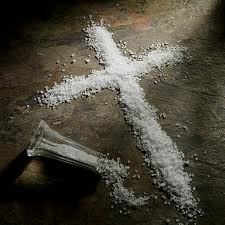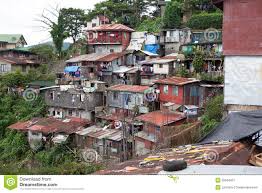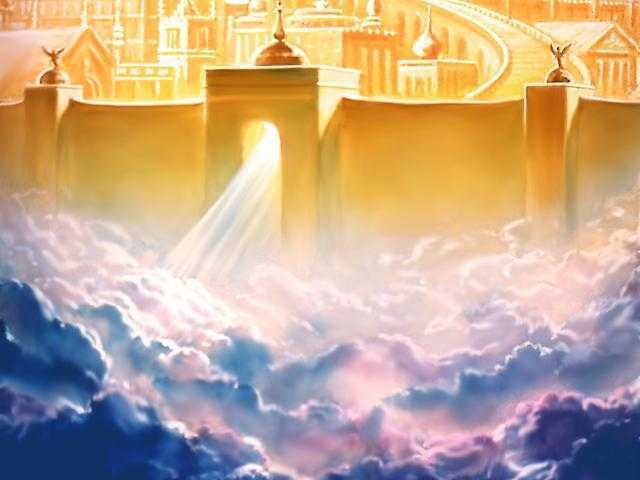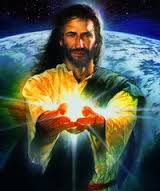
Fifth Sunday in Ordinary Time, Year A
Gospel Text: Matthew 5:13-16
 vs.13 Jesus said to his disciples:
vs.13 Jesus said to his disciples:
“You are the salt of the earth. But if salt becomes tasteless, what can make it salty again? It is good for nothing, and can only be thrown out to be trampled underfoot by men.
vs.14 You are the light of the world. A city built on a hilltop cannot be hidden.
vs.15 No one lights a lamp to put it under a tub; they put it on the lamp-stand where it shines for everyone in the house.
vs.16 In the same way your light must shine in the sight of men, so that, seeing your good works, they may give the praise to your Father in heaven.”
**************************************
We have four sets of homily notes to choose from.
Please scroll down the page.
Michel DeVerteuil : A Holy Ghost Priest, Specialist in Lectio Divina
Thomas O’Loughlin: Professor of Historical Theology, University of Nottingham
John Littleton: Director of the Priory Institute, Tallaght, Dublin 24
Donal Neary SJ: Editor of The Sacred Heart Messenger *******************************************************
Michel de Verteuil
Lectio Divina with the Sunday Gospels – Year A
www.columba.ie
General notes
Following on the Beatitudes, this Sunday’s gospel adds some more insights into the qualities of the followers of Jesus. It does this through three images – salt, light (in two phases) and a city built on a hilltop.
It is a short passage which means that we can spend time on whichever of the images we are drawn to and go deeply into it. Even as we do this, we may find it necessary to refer to the others, as the three complement one another, painting the picture of a perfectly rounded person.
As always in the bible, the images are not static and we must discover the movement within them, two movements in fact – one of sin and one of grace. We identify with both movements – repent the sin and celebrate the grace. In each case we choose who we are identifying with:
– Jesus and his followers;
– the people whose lives they touch;
– Jesus teaching the crowds from the mountain.
The passage is a teaching of Jesus but also a personal testimony revealing to us the kind of person he was, and still is, living in the “Jesus people” we meet. We celebrate them and allow them to challenge us both as individuals and as a Church community.
Textual comments
 Verse 13a – “You are the salt of the earth”
Verse 13a – “You are the salt of the earth”
Salt is an appropriate symbol of Christian living from different points of view; this text invites us to focus on one of these – it gives taste.
Remember people who have brought sparkle to your life at a time when it had become drab.
Apply the image at different levels:
– the arrival of a new born baby brings reconciliation to a family;
– a family in distress is cheered up by the visit of a kindly parent, grandparent, uncle or aunt;
– a manager or worker brings a new spirit of cooperation between management and labour.
– a newly elected leader injects idealism into public life;
We can apply the image to groups as well as to individuals:
– a new movement arises within a parish community or a neighbourhood;
– an NGO starts a community project which transforms a run-down neighbourhood;
– a new political party brings hope by campaigning against corruption or working for independence;
– the Church is converted to the cause of the poor and becomes a force for radical change in society.
We think of Jesus being “salt“ for the Jewish religion of his time, bringing a humanity to it that was lacking. We remember him
– refusing to let the Pharisees intimidate his disciples;
– eating with sinners;
– so fond of feasting that he was accused of being a “drunkard” and “possessed”.
Remember when someone was Jesus for your community or family.
All these are stories of grace. The passage then raises another option, a story of sin: the salt becomes tasteless. The text evokes three aspects of the decline:
a) “Nothing can make it salty again.” Feel the hopelessness – “If he or she (or the community) acts like this, what hope is there for the rest of us?”
b) “It is good for nothing” – extreme pathos, “They had so much potential, now look at them!”
c) “It can only be thrown out to be trampled on by men“. Fallen heroes are looked down on in word and deed:
– a large church building once packed with worshippers is now empty;
– a great doctor is alone in his office;
– the seminary has a handful of students;
– the church is mocked because of clerical scandals;
– former nationalist leaders turned corrupt and now languish in prison.
We think of how the great Jewish religion became mean and narrow minded at the time of Jesus, a “loss of focus” which would recur many times in the history of church:
– the Crusades;
– theologians of the 16th century defending the ill treatment of the Indians;
– Christian churches not speaking out against segregation in the Southern United States and apartheid in South Africa;
– church leaders blessing armies (today again in the “war against terrorism”).
We celebrate bishops of today who “go up a hill and sit down” to challenge their fellow bishops to be “salt to the earth” by taking a prophetic stance against their governments, e.g. Bishop Gumbleton in the US, and Archbishop Ncube in Zimbabwe.
Verse 14a – The image of light: “You are the light of the world”
This image also presents a contrast, this time between “the light” and “the world”, understood as a place of darkness. We remember good people coming into our lives, like day dawning after a long night, or a rescuer arriving with a light when we had been plunged in darkness.
Here the text does not spell out the image, so we can be guided by our experience. We remember our feelings:
– clarity: we had been lost and confused, then we saw a way forward;
– joy driving away sorrow;
– hope: we saw possibilities where before we had seen none.
 Verse 14b – “You are a city built on a mountain top”
Verse 14b – “You are a city built on a mountain top”
The text brings out one aspect of the image – such a city cannot be hidden.
We are free to imagine the reasons why someone would want to “hide” it.
– From within, the community is afraid of publicity (“We will become an easy target”), or is over anxious (“Will our message get through?”).
– From outside, an enemy fears the consequences; a tyrant says,
“If we let them get away with their freedom, others will want to follow”.
To all Jesus says “You won’t be able to stop it”. Remember when some person or event made you realise this (with fear or relief); that was Jesus speaking to you.
Verses 15 and 16 – second aspect of the image of light, more concrete than the first, a lamp hanging on a lampstand. We choose who we want to identify with – the owner? the lamp? the people in the house?
– Verse 15a – The sin option: the owner can put it under a tub, Feel the sadness. Imagine why owners would want to do that. As with the previous image it could be the fear of publicity and the accompanying criticism in case of failure.
In this case however, there is another possibility – selfishness. The owners hide the light under a tub because they want to keep it for themselves; they can impose charges or conditions on those who will use it. We think of
– the abuse of the notion of “intellectual property”;
– resources like water, light and minerals, kept in the hands of a few;
– the rules of international trade, preventing the free flow of natural goods.
Jesus’ teaching is a radical critique of the modern capitalist system.
– Verse 15b – The grace option: it shines for everyone in the house. Feel the relief that the light is no longer hidden under a tub. Celebrate the people who hang it on the lamp stand.
– Verse 16 – Application of the image.
16a: your light shines in the sight of all. The image must be interpreted in the light of the other images. Jesus is not advocating showiness or putting ourselves forward; this would go against the images of salt and the city on a mountain top both of which affect others merely by being what they are. We celebrate people who live their values in public but are humble at the same time.
16b: they see your good works and glorify your Father in heaven. Be imaginative in interpreting “glorify”. It does not necessarily refer to saying prayers. What it reminds us of is how good people dispel negativity, they make others (including those who belong to other Churches and religions) feel happy and hopeful – “life is worth living”, “there is a God!”. Celebrate the times when people (movements) had this effect on you.
Scripture prayer
“Be men and women of the world, but not worldly men and women.” … Jose Maria Escriva
Lord, we thank you for the people who have been as salt for us, bringing life and joy to our lives, families, neighbourhoods,
workplaces, Church communities.
Remembering them and their good works makes us glorify you, our Father in heaven.
Lord, we remember with immense sadness people who have ruined their lives with alcohol, drugs, fanaticism.
We see them lying on the side of the road,
no one can bring them to be
what we know they are capable of becoming;
people are trampling them underfoot.
Lord have mercy.
“The sons and daughters of the Church must return with a spirit of repentance for the acquiescence given, especially in certain centuries, to intolerance and even the use of violence in the service of the truth.” …Pope John Paul II, Tertio Millennio Adveniente
Lord, we ask forgiveness for the times,
both past and present,
when your Church did reject the dominant values of its time
and was not salt to the earth.
No wonder idealistic people have scorned us,
trampling us underfoot as Jesus foretold.
“The truth cannot impose itself except by virtue of its own truth as it wins over the mind with both gentleness and power.” …Vatican II, Declaration on Religious Freedom
Lord, in our modern Western culture groups spend much time, money and energy on public relations. We pray that we may not follow this trend in our efforts to attract more people to join us.
Help us to concentrate rather on being true to the best of ourselves,
remembering that a city built on a mountain top cannot be hidden.
“The world has enough to satisfy every person’s need,
but not enough to satisfy every person’s greed.” …Gandhi
Lord, forgive us that many people nowadays
see their talents as opportunities for making money.
They hide them under a tub so that they can ration them out to the highest bidder.
The result is that your abundant gifts are not being shared. 
We pray that your church may be the voice of Jesus in the world, reminding our contemporaries that you have lit lamps in the world,
not to be hidden under a tub,
but so that they can be put on a lamp stand and shine on everyone in the house.
****************************************
Thomas O’Loughlin
Liturgical Resources for the Year of Matthew
www.columba.ie
Introduction to the celebration
My friends, we have gathered here because we have heard and answered the invitation of Jesus, the Anointed One. Gathered we become his people, his body, his presence in the world. We are called to act in the world like salt: giving flavour through its presence. We are called to be a light to those around us. We are called to reflect the goodness of our heavenly Father. So let us begin our gathering by recalling our identity as the community of the baptised.
Homily notes
1. Salt’, ‘light‘, a ‘shining city on a hill‘: three wonderful metaphors for the relationship of each community of Christians to the larger society in which it finds itself. It is a relationship whereby the Christian community is distinct within the larger society and offers it a service it may not even know it needs and might be unwilling to declare that it wants.  Our society is fine, one can hear people say, and it does not need a group of Christians thinking that they have the light or that they are a model of what our society should be. For our part, many of us Christians would rather keep our heads down, pointing out that it no makes difference that we are Christians to what we are like as neighbours, employees, or officials.
Our society is fine, one can hear people say, and it does not need a group of Christians thinking that they have the light or that they are a model of what our society should be. For our part, many of us Christians would rather keep our heads down, pointing out that it no makes difference that we are Christians to what we are like as neighbours, employees, or officials.
2. This situation of Christians being a small, identifiable group within a larger society was taken for granted at the time the gospel was written, and indeed survived until well into the fifth century. Then, for more than a millennium, the situation that Christians experienced was radically different: the community and the Christian community became virtually co-terminous. Indeed, the distinction between Christians / non-Christians was often replaced by the distinction of ‘ church’ (meaning the clergy, sometimes formally established as an estate) / state or the distinction of altar / crown. Now, with the occasional exception, that identification of church community and larger society has disappeared. We still hear people referring to ‘Christian countries’ but they just mean background culture, while we as Christians should be quick to deny that simply belonging to a country can be seen as being part of the body of Christ.
3. However, we are left with a few conundrums.
First, we have little experience of being a sub-group within society; and we are often far happier thinking of ourselves as the group that gives form to society.
Second, we have many mechanisms/ practices in our communal behaviour / pastoral strategies that served us well when we as the Christian community and we as a secular society were almost identical; but little by way of experience in being a servant of the larger society.
4. Just noting this new, or relatively new, situation, and helping people to recognise it as a factor in how they think of themselves, is a first step today.
5. Only when we can think of ourselves as having many ‘belongings’ can we think of how we, in a particular community, can be of service. We have to learn to steer between three sets of rocks.
First, the Christians cannot separate themselves out from society at large as if they are an elect sect, ‘the saved’. This is an option that many sects have taken over the centuries, but it ignored the fact that the whole universe is the creation of the Father. The Christ’s love and forgiveness reached out to all, and we are called help the society give praise to the Father, not to abandon it.
The Second Danger is to imagine that there is no distinction between the values of the larger society and that of the community of the church; life is simple if the Christians just disappear and adopt the current trends. We have a distinctive vision that the universe is good, it is loved by the Father, and there is the good news that can transform how we view life. 
The third set of rocks is to imagine that we can only relate to a society that signs up in detail to our vision. We must work with all people of good will, knowing that the Spirit is always at work before us, beyond our reach, and in ways we cannot see.
5. We are called today – in every place in the developed world to learn an aspect of being Christians that, for the most part, never even bothered our parents or grandparents. But part of the good news is that in every learning curve there is the Spirit’s presence to be called upon to bring light in our darkness.
***********************************
John Litteton
Journeying through the Year of Matthew
www.Columba.ie
Gospel Reflection
The gospel reading invites us to reflect on the significance of the light of Christ in our lives. The image of worldly light is used to communicate the deeper meaning of the light of Christ. Light dispels darkness. It gives us confidence because it points us in the right direction. It enables us to see things as they are.
We often take light for granted. Usually we do not notice it until, suddenly, we are without it. Whenever we experience power-failures we are reminded that we are particularly dependent on light for clear vision and we realise how necessary light is in our everyday lives. The real value of light, then, is to be found in its brightness, which provides us with direction.
Jesus used the image of light when speaking to his disciples. He told them that they were the light of the world, just as he was their light. By imitating his teaching and example in their own lives they could, like light, offer guidance and direction to other people. This was because they knew where they were going. The disciples were to share and reflect the light of Christ, which would give light to the world.
 What is the light of Christ? The light of Christ is our guiding light. We feel secure in the light of Christ as it directs us through life. It is the teaching of Christ that motivates us to live in imitation of him. The light of Christ is God sharing his life and love with us. It is the life of Christ that is shared with us in the Eucharist: the living bread that has cone down from heaven giving life to the world.
What is the light of Christ? The light of Christ is our guiding light. We feel secure in the light of Christ as it directs us through life. It is the teaching of Christ that motivates us to live in imitation of him. The light of Christ is God sharing his life and love with us. It is the life of Christ that is shared with us in the Eucharist: the living bread that has cone down from heaven giving life to the world.
The light of Christ offers people meaning and hope. It highlights the love that can be found in the goodness of life. It challenges us to live God-like lives, lives without sin. It offers us consolation and reassurance because it assures us that Christ is near at all times.
We are as much disciples of Jesus as those to whom he spoke in the gospel. Each one of us is being challenged to be the light of the world. But we are also being conunissioned collectively, as members of Christ’s Church, to be the light of the world. We are the light of the world when we are decent and respectful towards other people and when we live according to the teaching of Christ and his Church. We are invited to see in a new light.
Seeing in a new light is about seeing in a new perspective, God’s perspective. It is about behaving in a different way. Therefore, let us see in a different light and let our light shine in people’s sight, so that, seeing our good works, they may give praise to our Father in heaven.
For meditation
You are the light of the world. (Mt 5:14)
*******************************
Donal Neary SJ:
Gospel Reflections for Sundays of Year A: Matthew
www.messenger.ie/bookshop/
Salt for the Eucharist
In Galilee around the time of Jesus, there was a flourishing fishing industry. Peter, James and John were part of it, and they were big-time fishermen. Fish from Galilee went all over the then known empire, and to Rome along the trade route, which went through Galilee. It was kept fresh, as much food was, as we kept food fresh for years before freezers – by salting it. The word of God is kept fresh within us by prayer; otherwise our Christian life may become weak and tasteless.
A big food of Jesus is the Eucharist. His bread of life can go stale unless we ‘salt‘ it. We salt the Eucharist by our lives. We keep the Mass alive by the way we live.
The Eucharist is entrusted to us. God gives us his Son, his food, and leaves it to us how we live by it.
 Jesus invites us to be the ‘salt of the earth‘ – to be people whose lives are centred on helping others and making the places around us places of kindness, compassion, hope, fun and life. We don’t say ‘You’re salt of the earth‘, if someone just receives communion. We are the salt of the earth if we live out our communion. The bread of Jesus is salted with the goodness of men and women, young and old, everywhere.
Jesus invites us to be the ‘salt of the earth‘ – to be people whose lives are centred on helping others and making the places around us places of kindness, compassion, hope, fun and life. We don’t say ‘You’re salt of the earth‘, if someone just receives communion. We are the salt of the earth if we live out our communion. The bread of Jesus is salted with the goodness of men and women, young and old, everywhere.
Our response then links in with the first reading – if we feed, shelter, clothe and help our neighbour, we are ‘the light that rises in the darkness’.
Recall when you helped someone recently.
Give thanks you could do this.
Lord may your kingdom come in every part of the world.
****************************